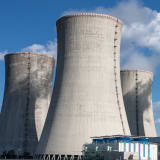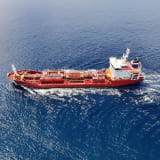
From the latest PMI values for major economies, one can draw a few conclusions. Firstly, Europe is still in recovery mode and is just emerging from its long slump which followed the Russian invasion of Ukraine two years ago. Additionally, the Indian economy continues to be in overdrive mode with strong expansion on large infrastructure spending and improved foreign investment. Thirdly, despite the fact that China’s economy is still expanding, it is doing so at a slower and slower pace. Finally, the long-awaited “soft landing” of the US economy is still in the air, as the economy is showing signs of slowdown which may easily turn into a recession, tipped by a multitude of possible factors.

By now it is a familiar story that Europe’s industries are suffering from inflated costs, while China is pushing out cheap exports driven by tepid domestic demand and huge capacity oversupply. To give a sense of the extent of what is happening, BASF’s chairman Martin Brudermüller told investors in March: “We see imports from China coming in, in an order of magnitude like never before.”
Many of Europe’s chemical producers, including BASF, have been operating at significant losses for more than a year, while operating rates on the continent have dropped to as low as 57%. As early as last year, BASF announced that it may need to shut down capacity in Europe and expand in China or the US where there is a cost advantage. The company is trying to cut costs in Europe by about a billion euros and has recently put its Ludwigshafen facility for sale.
Other chemical heavyweights have announced similar plans. Indorama Ventures, ExxonMobil, Ineos, Dow and most recently LyondellBasell, are all in the midst of reviewing their business in Europe and downsizing, selling, or shutting down non-competitive capacity. Added to this, as long-term oil demand in much of the developed world is already falling or set to fall, not only is no new refining capacity expected to be built there, but some of the older ones could be shut down. At the same time, much of Asia is still growing and this would mean adding more refining capacity in countries such as India, China, or Indonesia. This would mean petrochemicals feedstocks for European chemical plants would be cheaper and easier to source from abroad – mostly from Asia.
Where may this lead the chemical tankers market in the years to come?
More imports into Europe from further afield would have a large positive impact on the ton-miles demand. This spells good fortunes for vessels used in the long-haul trades – the J19s and above. Here the 25,000 dwt ships which have been gaining popularity in the past few years may be very well suited. With more such tonnage concentrated in the hands of Chinese owners, they may be very well positioned to benefit from the expected increase in chemical exports from Asia, especially those controlled by Asian charterers. European owners may have their best chances servicing European or American charterers.
The ships used in the coastal trade however, may have trouble finding sustained employment as older facilities where they may have had advantage due to size restrictions, are being shut down. Furthermore, with fewer operating facilities in Europe, there would be fewer coastal movements, making it even more challenging for small ships to make a living. Something similar is already playing out in Northeast Asia. On the other hand, the small vessels engaged in the coastal trade are one of the oldest segments with few replacements being built – this is especially so in Europe. So any charterers having requirements for coasters will have to be content with older tonnage, while those fortunate few new vessels may be able to command a substantial premium.
But what if Europe or the US impose large import duties on China-origin chemicals? This is unlikely to change much of the dynamics. Products where Europe is a high-cost producer, will still have to supplied from abroad as local capacity is shut –not from China, but maybe from the US or the Middle East and this will still represent an increase in ton-miles demand compared to the current situation.
By Plamen Aleksandrov, Market Researcher, Chemicals, SSY
Articles
You may also be
interested in
View allGet in touch
Contact us today to find out how our expert team can support your business















